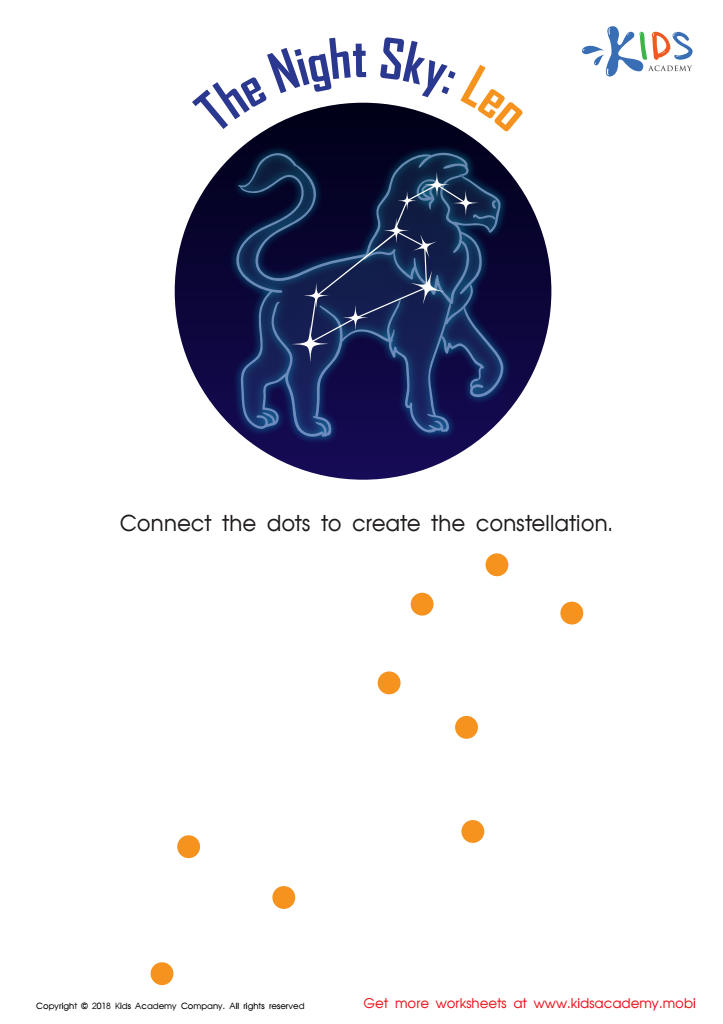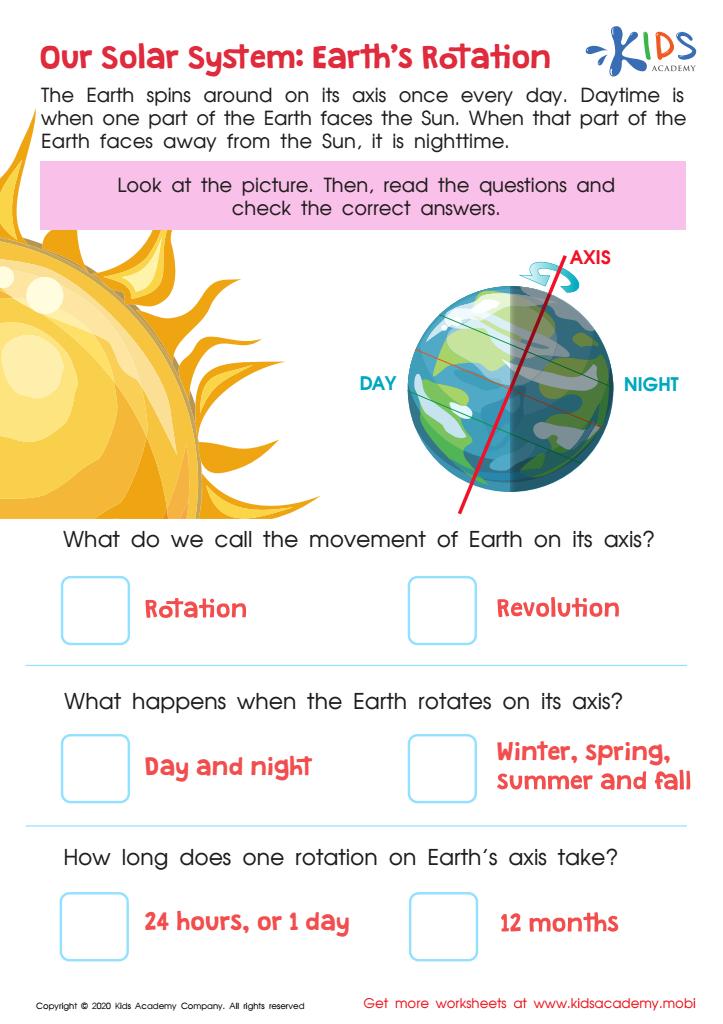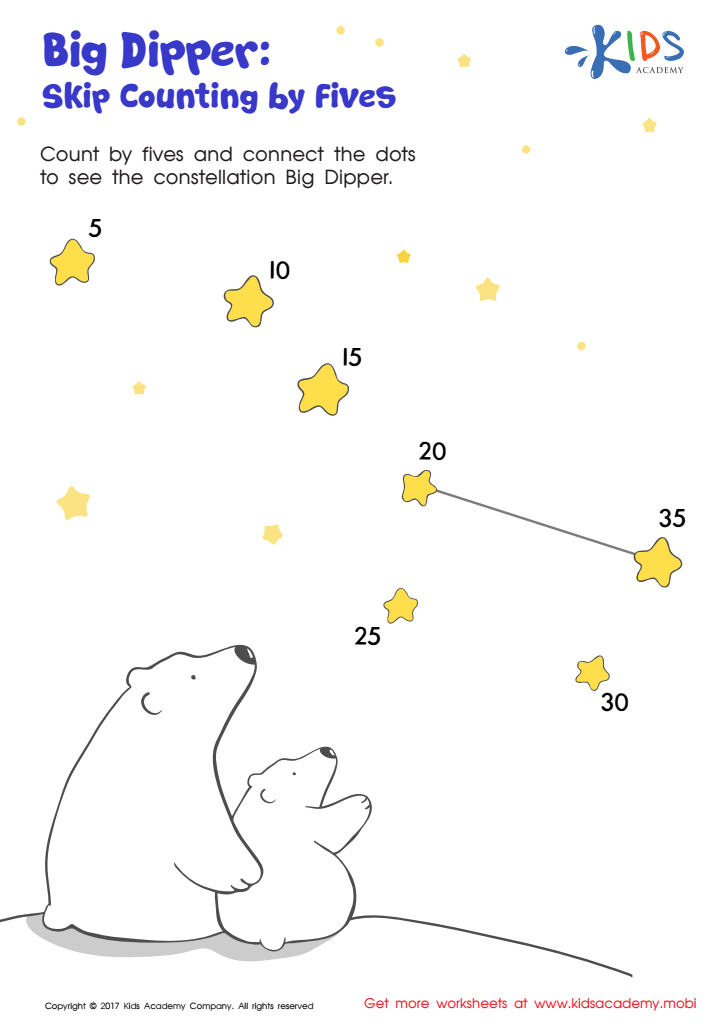Astronomy basics Worksheets for Ages 7-9
3 filtered results
Difficulty Level
Grade
Age
-
From - To
Subject
Activity
Standards
Favorites
With answer key
Interactive


The Night Sky: Leo Worksheet
Let your kids explore the wonders of the stars with this fun worksheet! They'll connect the dots to create the constellation Leo. Night gazing instruments, a telescope or this printout can help your kids learn about constellations and horoscopes. Download the worksheet and let the star watching begin!
The Night Sky: Leo Worksheet
Worksheet


Our Solar System: Earth's Rotation Printable
They'll examine the illustration and answer questions to increase their vocabulary and knowledge.
Our Solar System: Earth's Rotation Printable
Worksheet

 Assign to the classroom
Assign to the classroom

.jpg)










